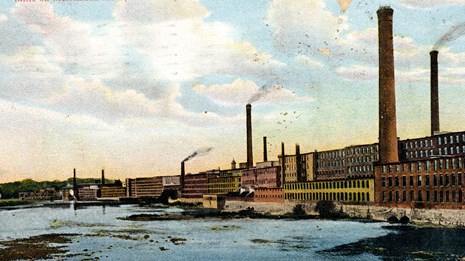The Dawn of a New Era
Before factories emerged, manufacturing predominantly took place in small workshops or homes, often relying on manual labor and hand tools. The Industrial Revolution, however, marked a departure from these traditional methods. Factory Industrial Revolution brought forth a new concept – centralized locations equipped with machinery, specialized labor, and raw materials, all working in harmony to produce goods at an unprecedented scale.
Mechanization and Innovation
Factories embraced mechanization, a key driving force of the Industrial Revolution. Water and steam-powered machines replaced human effort, greatly enhancing production capabilities. Innovations like the spinning jenny, power loom, and steam engine revolutionized industries, particularly textiles, setting the stage for mass production and economic expansion.
The continuous quest for efficiency led inventors and engineers to develop groundbreaking technologies. These innovations didn’t just fuel factories; they paved the way for further scientific discoveries and technological advancements that reshaped the world.
The Social and Economic Impact
Factories redefined the very fabric of society. Urbanization surged as rural populations migrated to cities in search of factory work, giving rise to densely populated urban centers. This shift had far-reaching consequences – altered family structures, new patterns of work, and a rising awareness of labor rights.
Economically, factories were pivotal in transforming how goods were produced and consumed. The cost of production dropped significantly, making goods more accessible to a broader population. Consumerism flourished, creating a cycle of demand that spurred economic growth.
Challenges and Reforms
The rise of factories also brought challenges. Workers, often subjected to long hours, low wages, and hazardous conditions, began advocating for improved labor conditions and workers’ rights. This led to the emergence of labor unions and the implementation of labor laws, laying the foundation for modern labor regulations.
The Modern Legacy
The legacy of factories during the Industrial Revolution is far from forgotten. The principles of mass production, mechanization, and specialization that factories pioneered continue to shape modern manufacturing processes. Robotics, automation, and advanced machinery owe their existence to the innovative spirit of this era.
Additionally, the social changes instigated by factories have left a lasting impact on how we view work, family, and urbanization. Lessons from the past inform discussions on labor rights, workplace safety, and equitable economic growth.
